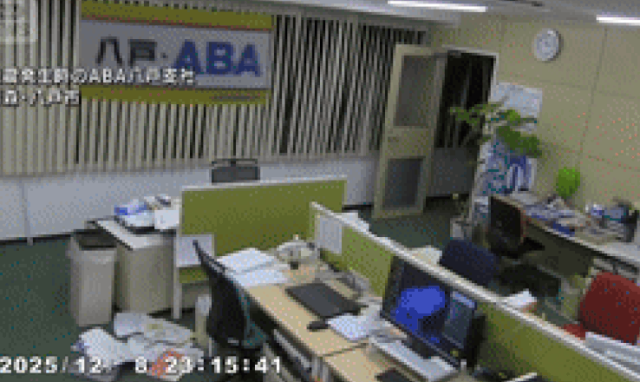[송현칼럼] 한국 금융 청사진 다시 그려야
데이비드 전 디스커버리캐피털 회장
필자는 잘못된 투자를 했을 때 그것을 고치려고 노력해왔다. 대개의 경우 기존의 실패에서 깨달음을 얻고 투자의 틀을 바꿔 아예 투자를 접거나 새로운 투자를 시작하는 것이 최선의 선택이었다. 한국 금융시장을 바라볼 때 한국은 현재 상황이 앞으로 어떻게 흘러갈지에 대해 고민해봐야 한다. 아무런 변화가 없다면 한국의 금융 부문은 경제 전체에서 보조적인 역할을 하는 데 그치고 말 것이다. 금융 부문이 성장을 가속화하고 부를 창출하려면 한국은 금융 부문의 청사진을 과감하게 다시 그려야 한다.
한국의 금융 부문에는 많은 문제가 있지만 몇 가지 주요한 문제들을 꼽아보도록 하겠다. 한국은 자본시장을 완전히 개방한 반면 해외투자는 제한하고 있다. 한국의 자본 상황이 열악했을 때는 이것이 문제가 되지 않았지만 금융자본이 쌓여가는 상황에서는 얘기가 다르다. 어떤 정부도 제조업과 관련해서는 수입을 허용하고 수출을 막는 정책을 채택하지는 않을 것이다. 그러나 한국 정부는 해외자본에 대한 필요성이 높았을 때 그와 같은 정책을 금융 부문에서 선택했다. 시간이 흐르면서 이 정책은 국가의 금융자산을 문제로 만들었고 국가경쟁력을 훼손하고 말았다. 필자는 한국이 이런 상황을 원했다고 생각하지 않는다. 한국은 이 틀을 철저하게 바꿀 필요가 있다.
이 정책의 다른 역효과는 한국의 자산 가격이 상승하는 데 영향을 미치고 있다는 것이다. 이것은 소위 '온실 효과'라고 한다. 당국이 자본의 수입은 열고 수출은 막아섰기 때문에 한국의 통화와 유형자산, 서비스 등은 지나치게 평가절상돼 있다. 한국 부동산시장의 고질적인 문제는 국내에 지나치게 많은 자금을 쌓아두기 때문에 생겨났다고 해도 과언이 아니다. 자본은 갈 곳을 찾을 수가 없다. 많은 정책들이 부동산 가격 급등과 관련해 문제의 원인보다는 결과를 고치려는 데 초점을 맞추고 있다. 자본의 수출을 제한하는 문제를 해결하기 전까지는 부동산 투기를 줄이려는 노력이 효력을 발휘하지 못할 것이다.
또 다른 역효과는 한국 원화가 근본적인 가치에 비해 지나치게 절상돼 있다는 점이다. 시장 펀더멘털이 개선되면 주가가 오르는 것처럼 통화도 그러하다. 그러나 강한 통화를 위해서는 인위적인 절상 외에 다른 방법이 필요한지 생각해봐야 한다. 현재까지 원화가 지나치게 상승할 경우 주로 사용됐던 방법은 변동 폭을 줄이기 위한 시장 개입이었다. 이는 미봉책에 불과하다. 한국은 이런 식의 개입으로 장기적으로는 고통받을 가능성이 높다. 환율시장에 대한 개입은 한국 기업들에 환율 변동에 대한 적응력을 높이기 위해 투자하면서 생산성을 높일 수 있는 시간 여유를 허락하지 않는 것이다. 또한 자본의 수출을 제한하면 한국은 해외투자로 인한 자연스러운 통화 강세라는 이점을 놓치게 된다. 현재의 통화정책구조를 그대로 유지한다면 그 피해는 막심할 것이다.
한국 금융시장의 낡은 틀에 관해서 마지막으로 지적하고 싶은 것은 일본의 것과 너무 유사하다는 점이다. 그동안 일본의 금융시장구조는 제조업 성장을 뒷받침했으나 자본시장을 통한 성장에는 부정적 영향을 미치고 있는 것으로 입증됐다. 한마디로 새롭게 부를 창출하기보다는 현재의 부를 지키는 데만 유용하다는 뜻이다. 한국도 마찬가지다. 해외자본 투자를 자유롭게 허용하지 않는다면 한국은 앞으로 일본과 비슷한 경제 상황에 빠질 우려가 크다. 한국은 경제적인 발전을 위해서가 아니라 현재의 위치를 지키기 위해 거의 모든 에너지와 자원을 쏟아붓는 나라다. 그것은 비극이다.
한국은 과거에 빈곤 문제를 풀기 위해 사람들에게 먹을 것과 입을 것을 더 주거나 하지는 않았다. 대신 농업에서 제조업으로 경제 기반을 바꾸는 것으로 그 문제를 해결하려고 했다. 이는 위험한 일이었지만 오늘날 이 변화로 인해 많은 혜택을 누릴 수 있게 됐다. 필자는 한국이 현재 갈림길에 서 있다고 본다. 한국은 낡은 금융구조를 타파하고 새로운 청사진을 그려내려는 노력이 필요하다.
현재 가장 핵심적인 문제는 금융구조를 발전시키기 위한 논의를 어떻게 하면 실제 정책으로 연결시킬 수 있느냐는 것이다. 이를 위해 한국의 지식인들이 의무를 다해야 한다. 또 한국의 정부 당국자들이 낡은 틀 속에 갇혀 현재의 위치를 지키려는 데 초점을 맞추기보다는 어떻게 하면 더 강하고, 부유한 나라를 만들 수 있을지 고민해주기를 바란다. 막대한 글로벌 자금이 중국에 몰려드는 상황에서 제조업 기반의 한국은 점점 더 소외를 당할 것이다. 한국이 상품과 자본의 세계화를 충분히 이해하고 더 빨리 수용한다면 후손들에게 더 나은 미래를 물려줄 수 있다.
Korea needs to Rewrite its Financial Sector Blue Print
There are times when I make bad investments I try to "fix" it by adding and amending the existing position. In most cases, it is best to close the position and start a new position incorporating the lessons learned and changed framework for the investment. When I look at Korea's architecture for its financial market related policies, Korea needs to really rethink about the future implication of status quo. Without any change, the financial sector will continue to play only the supporting role in the economy. If Korea wants the financial sector to become a growth driver and wealth creator, Korea needs to drastically rewrite its financial sector blueprint.
There are many problems but let me highlight the main ones here. On the capital flow, Korea allows full import (inflow) but restricts exports (outflow). This was fine when capital was scarce in Korea but as the financial wealth accumulates this becomes a structural problem. A country would never adopt this policy regarding the import and export of manufactured goods. Yet, the policy that was adopted many years ago when the need for foreign capital was greater than resources is still in place. Over time this policy will turn an asof a country (financial wealth) into a problem and eventually make the country less competitive. I don't think this is what Korea wants. The problem is that the framework is already well outdated and marginal and incremental approach to change will not be effective. Korea needs a drastic rewrite of this framework.
Another side effect of this policy is to create an upward pressure on domestic asprices. This is so call a greenhouse effect. Currencies, physical assets and goods and services will become over priced as Korea as the country restrict outflow and allow a full inflow. The chronic problem Korea faces with the real estate market is caused by the fact that the regulation is keeping too much money within the country relative to opportunities. Wealth has no where to go. Many policy responses to the real estate sector price increases deal with the effects of the problem rather than fixing the cause of the problems. Until the problem with the restricted outflow is dealt with, efforts to deal with the real estate market speculation will be less effective. Korea's wealth base has outgrown the key component of its financial sector architecture. This deserves a serious debate and a decisive action.
Another phenomenon is the currency getting too strong relative to fundamental value. I view a strong currency as a market pricing a higher credibility on a liability of a country. Stocks go up in value as fundamentals improve, and so should the currencies. However, we need to determine what part of the demand for the currency is fundamental versus artificial driven.
Again, the main tools up to now to deal with the won being too strong has been to use market intervention to moderate the movement of the Korean won. Compare to the currency crisis of 1997, this is a high class problem. Yet, the main strategy to deal with excessive currency moves is intervention, which is dealing with effect rather than fixing the cause or source of the problem. By doing so, Korea might alleviate short-term problems but likely to suffer a long-term negative consequences. For example, the artificially excessive strength of the won will reduce Korean firms' competitiveness. The fast pace of the currency move will not give the Korean firms sufficient time to make productivity enhancing investments to adjust to changing currency value. Also, by restricting the outflow, Korea is not able to take advantage of its currency strength by investing abroad. The regulation is forcing the positive event of the stable to stronger currency behavior into a liability rather than an asset. The long-run implication of keeping this framework in place is very damaging.
The last point regarding the financial market architecture of Korea that is outdated is how it is similar to Japan's. The financial market frame work for Japan has proven over time that it is good to support manufacturing but very bad at creating wealth driven growth. It is good at preserving wealth rather than growing wealth. I find this highly ironic that Korea's financial architecture resembles that of Japan's. The experience of Japan over the past 20 years clearly shows what lies ahead for Korea. By not debating and hopefully changing the very basic foundation of freeing up capital outflow, Korea is likely to experience Japan like economic condition in coming years. Korea is likely to become a country that spends much of its energy and resources to preserving its economic development status rather than growing it further. This is tragic.
When Korea was poor, it did not try to solve this problem by giving people more to eat or wear. It retooled the economy from an agriculture based to manufacturing based country. It took risks and today is benefiting from this change. I see Korea at a similar crossroads today. Instead of fighting the symptoms of an outdated financial framework, Korea needs to rewrite and redevelop its financial market architecture. I think in theory, many can agree with this suggestion. Even if people do not agree, they would agree that it deserves a meaningful discussion and consideration. The key question at hand is how to develop a framework to get theory into action. To this end, I call on the intellectuals in Korea to fulfill their duty and I call on decision makers in the government (both bureaucrats and politicians) to care about how to make Korea stronger and wealthier rather than focusing on how to keep Korea locked into an outdated framework. Korea does not have much time. With abundant global capital willing to finance China's development, marginalization of the Korean manufacturing base will be fast and furious. The sooner Korea fully appreciates and embraces the true globalization of both goods and capital the better the prospects for the future generations.
입력시간 : 2006/12/17 16:07










